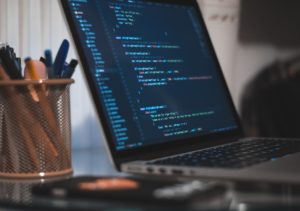Python, with its simplicity and versatility, has become one of the most popular programming languages in the world. Whether you are a beginner stepping into the coding realm or an experienced developer exploring new horizons, having the right essentials at your disposal can significantly enhance your Python development journey. In this article, we will delve into three essential aspects every Python developer should focus on to build a robust foundation: mastering data structures and algorithms, cultivating a deep understanding of libraries and frameworks, and honing problem-solving skills through real-world projects.
Mastering Data Structures and Algorithms
A proficient Python developer understands that the key to writing efficient and scalable code lies in mastering data structures and algorithms. From lists, tuples, and dictionaries to more complex structures like trees and graphs, a thorough understanding of these data structures enables developers to choose the right tool for the job, optimizing both time and space complexity. Additionally, algorithms form the backbone of problem-solving in programming. By mastering sorting algorithms like quicksort and mergesort or search algorithms like binary search, developers can tackle a wide array of challenges, from optimizing database queries to solving complex puzzles. Online platforms like LeetCode and HackerRank offer a plethora of problems that allow developers to hone their algorithmic skills, providing a practical and hands-on approach to learning. Remember, a well-structured algorithm not only improves the efficiency of your code but also showcases your problem-solving prowess to potential employers and collaborators.
Cultivating a Deep Understanding of Libraries and Frameworks
Python's extensive libraries and frameworks are a treasure trove for developers, allowing them to leverage pre-written code for various tasks and applications. Libraries like NumPy and Pandas are indispensable for data manipulation and analysis, making them invaluable for data scientists and analysts. Flask and Django, on the other hand, simplify web development, enabling developers to create robust and scalable web applications with ease. Moreover, mastering tools like virtual environments and package managers such as Pip ensures seamless collaboration and deployment of projects. By diving deep into these libraries and frameworks, developers can enhance their productivity and expand their capabilities. Additionally, staying updated with the latest trends and updates within the Python ecosystem is crucial. Communities like PyPI and GitHub offer a wealth of open-source projects and collaborations, providing ample opportunities to learn from peers and contribute to the community.
Honing Problem-Solving Skills Through Real-World Projects
While theoretical knowledge is essential, applying it to real-world projects is where a Python developer truly shines. Working on projects not only solidifies your understanding of Python concepts but also hones your problem-solving skills. Start with simple projects like building a calculator or a to-do list application. Then, gradually move on to more complex endeavors such as creating web applications, machine learning models, or automation scripts. Real-world projects not only enhance your technical skills but also teach you vital soft skills like project management, teamwork, and effective communication. Moreover, they allow you to showcase your creativity and innovation, setting you apart in a competitive job market. Collaborating with peers on open-source projects or participating in hackathons further broadens your horizons, exposing you to diverse perspectives and challenges.
Thriving in the Modern Work Environment
In today's dynamic work environment, collaboration is key. This is why understanding Desk Sharing has become an essential skill for Python developers. As more teams and projects adopt agile methodologies and remote work becomes the norm, the ability to efficiently share and collaborate on code is vital. Version control systems like Git enable multiple developers to work on the same codebase simultaneously, providing a robust solution for code management and collaboration. By mastering Git and platforms like GitHub or GitLab, Python developers can seamlessly contribute to team projects, track changes, and resolve conflicts, ensuring code integrity and smooth collaboration. Moreover, understanding the principles of Desk Sharing, which involves sharing physical workspaces and resources in office settings, can help developers adapt to hybrid work arrangements and effectively coordinate with colleagues. This skill ensures that developers can smoothly transition between remote and in-office work, promoting efficient collaboration and productivity in the ever-evolving workplace.
Continuous Learning and Professional Development
The world of technology is in a constant state of evolution, and Python is no exception. Keeping abreast of the latest developments and trends within the Python ecosystem is crucial for any developer. Engaging in continuous learning through online courses, and workshops, and attending tech conferences can provide valuable insights into emerging tools, best practices, and innovative techniques. Furthermore, active participation in developer communities and forums fosters networking with peers, opening doors to collaborative projects and mentorship opportunities. By staying curious and embracing a growth mindset, Python developers can not only refine their existing skills but also explore new domains like data science, artificial intelligence, or cybersecurity, enhancing their overall expertise and marketability in the industry.
Effective Communication and Documentation
Technical skills are undeniably essential, but the ability to communicate complex ideas clearly and document your work effectively is equally vital. Python developers often collaborate with diverse teams comprising designers, product managers, and other developers. Mastering effective communication ensures that ideas are exchanged seamlessly, fostering a collaborative atmosphere where everyone is on the same page. Moreover, maintaining comprehensive documentation for your codebase, projects, and APIs is fundamental. Well-documented code serves as a roadmap for other developers, enhancing the readability and maintainability of your projects. Tools like Sphinx enable the creation of detailed documentation, making your work accessible to both colleagues and the broader developer community. By honing these skills, Python developers not only enhance their professional presence but also contribute to a positive and efficient work environment, ultimately elevating the quality of their projects and collaborations.
In conclusion, becoming a proficient Python developer extends beyond mastering the language. It involves a holistic approach encompassing data structures, libraries, problem-solving, collaboration, continuous learning, effective communication, and meticulous documentation. By embracing these essentials, developers can navigate the complexities of the Python landscape with confidence, ensuring their skills remain relevant and impactful. As the tech industry continues to evolve, Python developers equipped with these diverse abilities are well-positioned to innovate, collaborate, and thrive in the ever-changing digital world.


